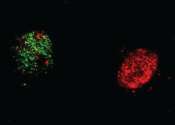Volume of grey matter may predict degree of altruism
What makes a person altruistic? Philosophers throughout the ages often pondered the question but failed to get concrete answers. New research from the University of Zurich in Switzerland shows that the answer may lie in our ...
Sep 17, 2012
0
0







